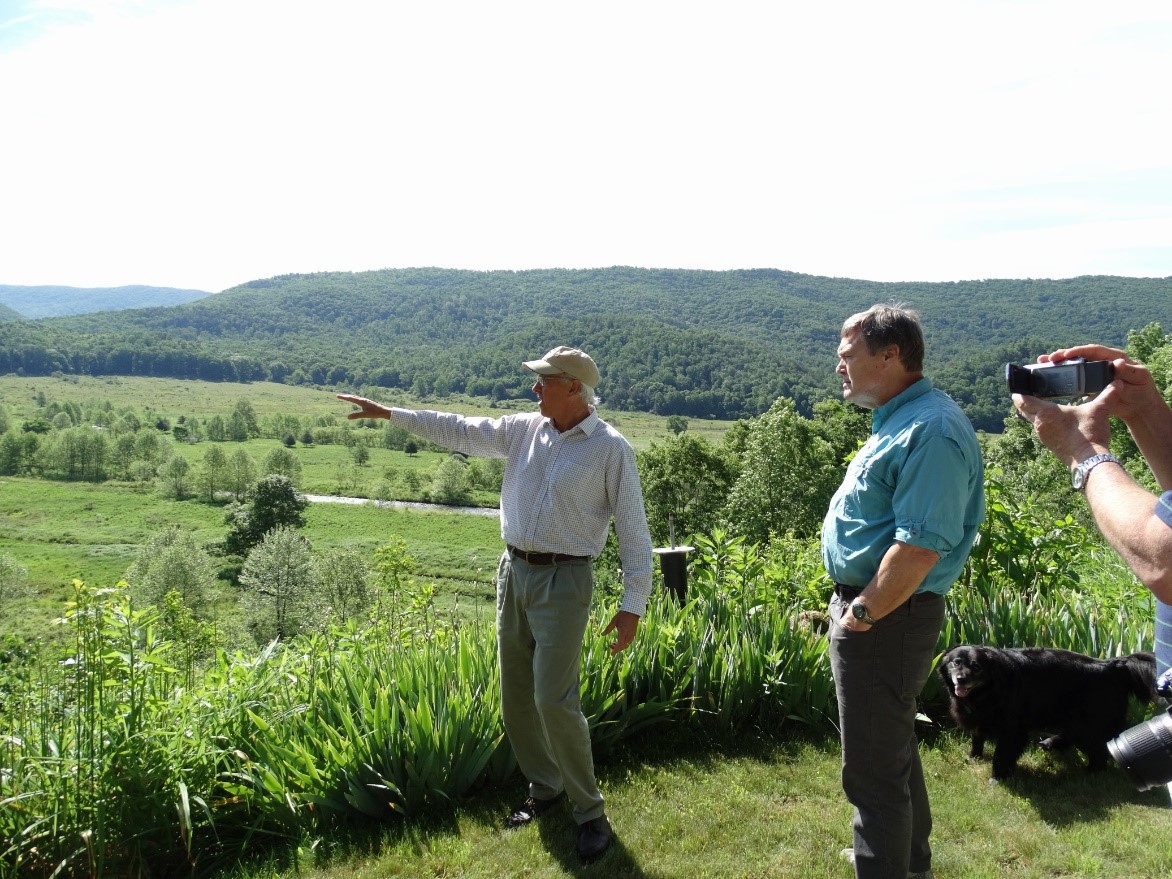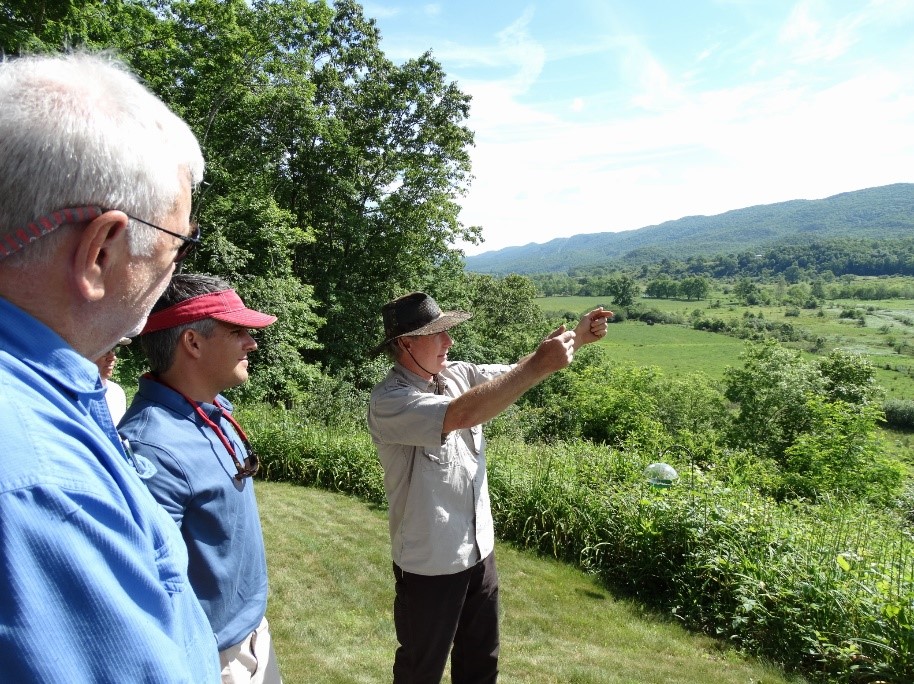David Paylor, Director of the Virginia Department of Environmental Quality, and Steve Gibson of the Norfolk, VA district office of the U.S. Army Corp of Engineers visited the proposed route of the Atlantic Coast Pipeline (ACP) on June 6 to see first-hand the water quality challenges the project presents. The all-day session, co-hosted by the Jackson River Preservation Association and the Cowpasture River Preservation Association, involved visits to several sites in Highland and Bath Counties, VA where the ACP route would present threats to water quality. The Jackson River and Cowpasture River combine to form the James River south of the ACP route.
 |
 |
Left: Ryan Hodges (l), Co-Chair of Voices From Bath, shows David Paylor of the VA DEQ where the ACP would cross the Jackson River, seen in the background. Right: Rick Lambert of the Highland County Cave Survey (r) discusses the geological characteristics and challenges of the route with Steve Gibson of the Corp of Engineers (c) and Bill Wilson (l), President of the Jackson River Preservation Association.
Among concerns expressed to Mr. Paylor and Mr. Gibson were the effects of construction through several areas of karst topography, several of which have not been properly identified and mapped by the ACP’s consultants. A second serious concern voiced to the regulators was the erosion and long-term instability that would be produced by steep slope construction, particularly in those places where mountain tops will be removed, and the resulting pollution by the residue of streams, rivers and karst recharge areas.

